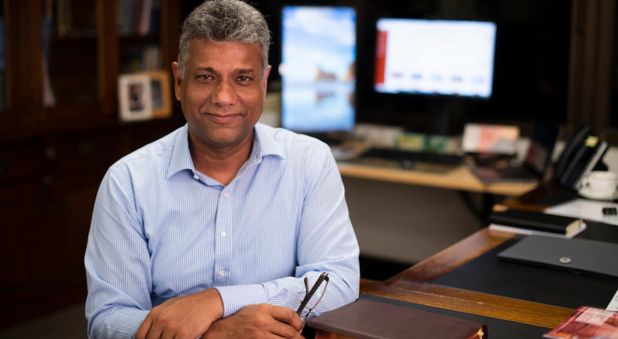In the past five years, two momentous decisions have been taken by our State Parliament, both under the banner of “right to choose”. The first, the abortion liberalisation in 2019, was a change against which Sydney Anglicans, led by my predecessor Dr Glenn Davies, took a firm stand. The other was in 2023. On November 28, the Voluntary Assisted Dying Act 2022 (NSW) (the Act) came into force in this State, enabling eligible people to choose to access euthanasia in accordance with the regulations and guidelines stipulated by the Act.
This watershed shift in medical practice and community expectation marks the final abandonment of one of the cornerstones of Western civilisation over the past two millennia: the sanctity of life. The idea that all human life is inherently precious was not generally affirmed in the world into which Jesus Christ was born (although it was a tenet of Judaism). It spread with the growth of early Christianity and finds expression today in the UN’s Universal Declaration of Human Rights.
It was a distinguishing feature of the early Christians that they began to rescue infants who were “exposed” – left to die in the weather – and to care for the sick and disabled. Two factors, at least, were operative. The first was the conviction that all human life was imbued with special and inestimable dignity and value irrespective of age, health or gender, having been created in the image of God. The second was the example and command of Jesus to love neighbours and even enemies, as oneself.
On both counts, Christians have opposed the taking of life and promoted care for the vulnerable. Famously, the Roman Emperor Julian complained in an anti-Christian tract he authored in the fourth century that, “the impious Galileans [Christians] support not only their own poor, but ours as well”.
Advocates of voluntary assisted dying (a deeply misleading cluster of words) emphasised not the sanctity of life, but quality of life as subjectively experienced, and the primacy of autonomous choice. During the debate, a man whose wife tragically died from a degenerative disease said to me, “Archbishop, if you don’t want to choose assisted suicide you don’t have to, but don’t get in the way of those of us who want the right to choose”.
I understand the depth of feeling – who could not – and the logic. But this way of arguing – “If you don’t choose it, it won’t affect you” – is naïve. It neglects the way in which practices form culture; the way laws create values. To enshrine a “right” to die in law crosses a boundary. A legal right to have another person, a physician no less, assist in your death affects everyone precisely because it is a matter of public law. And laws shape culture, values and community standards.
Despite our best efforts, the euthanasia lobby has prevailed. The practice is now law and causing confusion and anxiety in the community. On one hand we have suicide prevention efforts and on the other, an option of assisted suicide which, if NSW follows the overseas trends, will be extended to more and more categories of illness, mental and physical.
How do we Christians respond? First, we must remember God is sovereign. When our society walks away from his wisdom for our lives, it is an expected outcome of the rejection of his Lordship. We must not lose heart as if, somehow, God is not in control. We must continue to proclaim God’s grace and his good purposes.
As Sydney Anglicans gathered last year, the Synod made clear its opposition to voluntary assisted dying and called on the NSW Parliament to repeal the Act. Further, it expressed support for Anglicare Sydney as it continues to work out the contours of faithfulness to Christ amid the new medical landscape.
It is important to note that bringing in a regime of VAD has led to a cut in end-of-life care. This lack of support for vital palliative services may push people into assisted suicide. There is a petition to oppose the funding cuts which I urge all Anglicans to support. You may sign the petition online at the Legislative Council website.
In personal situations, it is entirely possible that a member of your extended or close family may consider VAD at some point. We should respond with compassion. I am extremely grateful to the Social Issues Committee for producing the resource Voluntary Assisted Dying in NSW: Pastoral Guidance and Theological Reflections for Sydney Anglican Diocesan Ministry Workers. Although aimed at those working in ministry, this resource is available on the Sydney Diocesan Services website and can be accessed by any interested person. I commend it to you.
The document begins with several fictional but highly plausible pastoral scenarios and offers helpful reflections on how Christians might respond. As that resource points out, our pastoral responses to VAD must be shaped by the gospel message and what it means for all forms of suicide.
I hope you will pray that the NSW Government will permit institutional conscientious objection, as permitted in other states, so that residents of aged care facilities and retirement homes are not confronted with the spectacle of physician-assisted suicide in the place they call home. Pray, too, for doctors and nurses, aged care workers and others who will soon find that they need to engage with distressed people considering VAD. And pray for palliative care physicians and other specialists, that their work would receive adequate funding – especially those working in rural and regional areas.
Most of all, pray that at the end-of-life people will have the opportunity to know the hope that is the gift of the gospel and find themselves supported to die, assured of God's love and forgiveness and the abundant life that only Jesus gives.




















